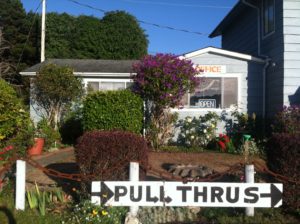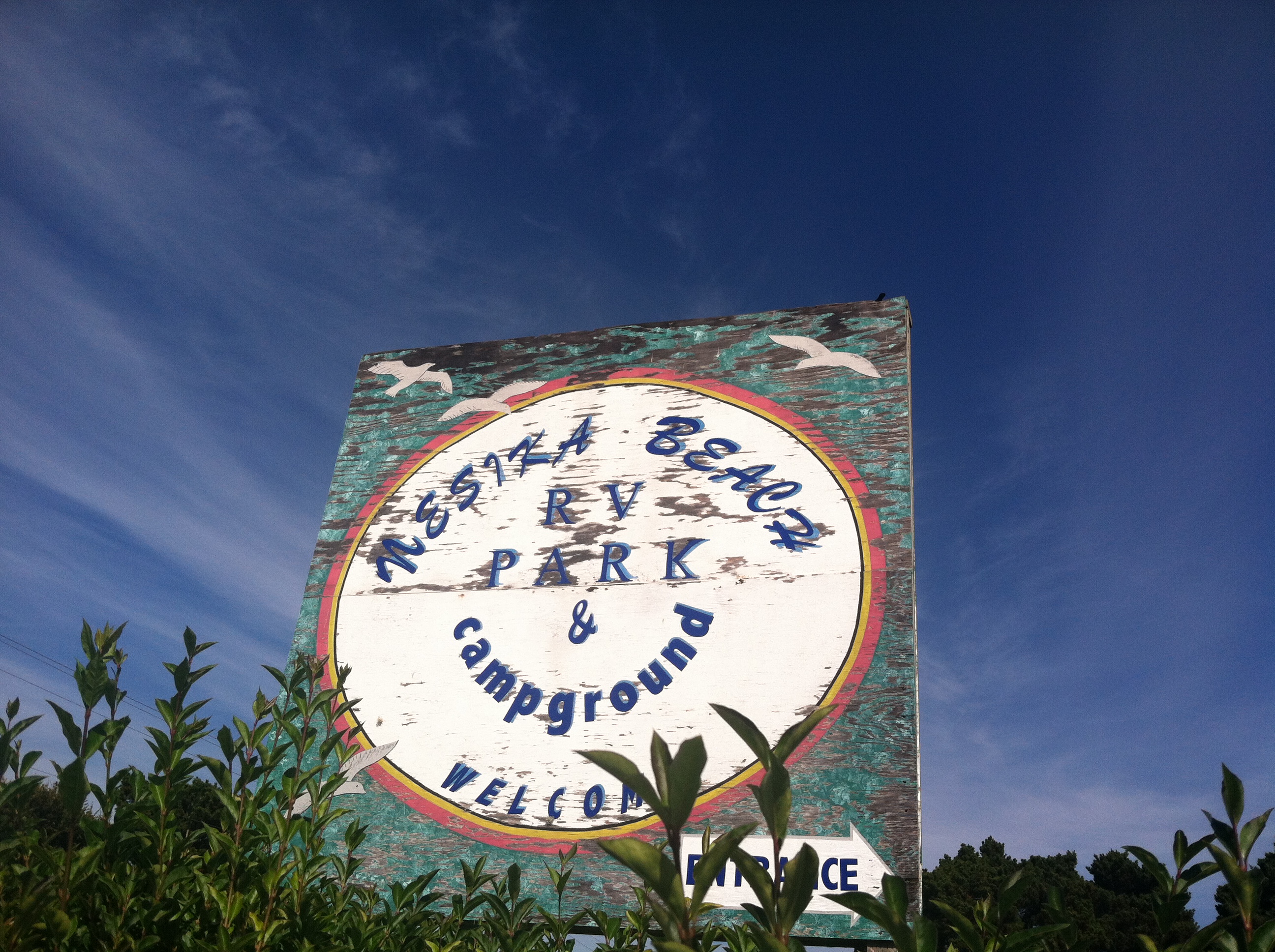Gold Beach Memoir Part 1
When I was on the existential lam last summer, in full flight mode, I ventured to the South Oregon Coast, Gold Beach, actually Ophir, a few miles north of Gold Beach proper. Something called to me and I took off in a Ford Ranger with a battered canopy and 275,000 miles on it. The plan was to camp out of the back of the truck and…I had no plan. There was nothing. There was only flight, sheer dread and being lost on a highway I’d driven a thousand times.
There was also no dog with me for the first time in 17 years. Sonny the husky was dead and I hardly knew how to live without a dog, let alone as a pariah.
Why Gold Beach called to me as my life blew up remains a mystery. I’d gigged there the previous summer, at the wonderful Gold Beach Books, and discovered the greatest tavern in Oregon, Turkeys. Are a great bookstore and the best Oregon Tavern Age joint in existence a reason to relocate? Yes, of course, but that wasn’t it.
Maybe it was that word “gold,” or the dream of a “golden country,” something that kept Winston Smith going in Orwell’s 1984 until he discovered the hard way it was all a totalitarian artifice masterminded by O’Brien. I knew something about that as well. The language of totalitarianism is always the same and there are O’Briens everywhere constructing Room 101s to break us apart and destroy who or what we love.
I fled south and ended up in the Nesika Beach RV Park and Campground. On two separate visits, I spent almost six weeks there. I no longer recall how I found the park. I was just driving and driving, pushing past Coos Bay, Bandon, Port Orford, the gold calling me down Highway 101.
Maybe it was seeing the sign on the highway because I didn’t consult a map, brochure or the internet. Maybe it was the sound of “Nesika,” very much like “Nestucca,” and I was seeking subconscious shelter with alliteration.
I took a spur road off the highway and found the entrance to the park. I saw a faded wooden sign and admired its antique, hand-crafted, appearance from an era when hand-written fonts ruled the typography of campground signs. I pulled into the gravel driveway and passed large, sleek RVs on either side of the drive. Some had decks, sheds, canopies and massive barbecues near them. Many had flowerpots, flags and lawn gnomes for decoration.
 The office came into view. I stopped the truck in front and got out. A swarm of hummingbirds flitted around me and I opened the door and went inside. A bell jingled. There was no one around. I inspected the office’s interior: glass counter, wood paneling, nautical displays, faded brochures, laundry soap for sale and groovy plants. It was 1975. I felt safe.
The office came into view. I stopped the truck in front and got out. A swarm of hummingbirds flitted around me and I opened the door and went inside. A bell jingled. There was no one around. I inspected the office’s interior: glass counter, wood paneling, nautical displays, faded brochures, laundry soap for sale and groovy plants. It was 1975. I felt safe.
A woman entered and said the owner would be back shortly. I checked the rates for tent camping: $18 a night and that included showers, washer and dryer, a lending library, Wi-Fi and hummingbirds galore.
The ocean was a block away. I could smell it. There was a convenience store a block away. I could smell hot dogs.
I put $18 in cash on the counter, left a note, drove to the tent camping area 30 yards away, and set up camp. I crawled into the back of the truck, ate a cheese sandwich, drank a beer and fell asleep in my makeshift bed. When I awakened, I walked over to the office and met the owner, an older man with a gray mustache. His name was Bruce. I introduced myself and said I was the one who left the note.
“How long you want to stay?” said Bruce.
“I have no idea,” I said.
I would take it one day at a time.
Bruce never asked me to register, or provide any information. It was a handshake deal and cash.

